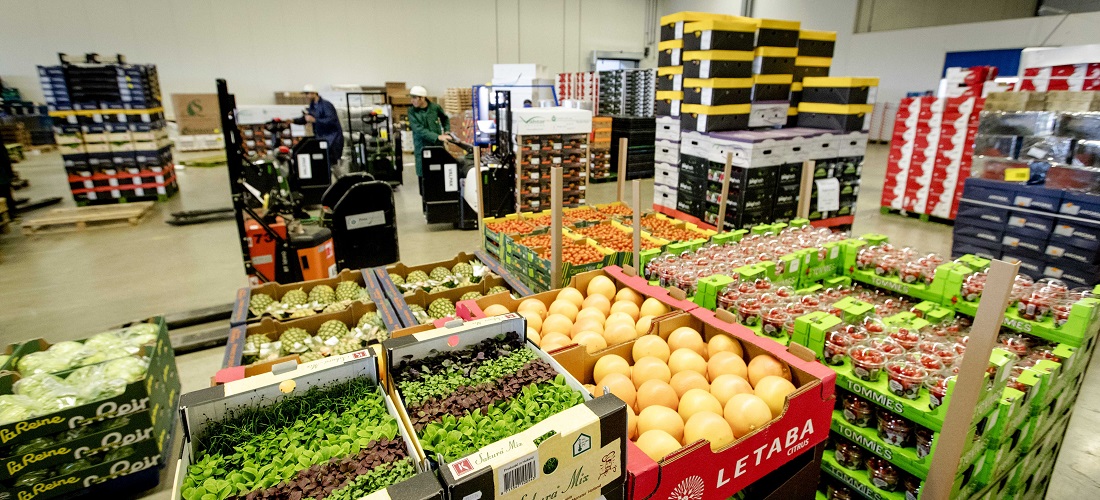
PT Proposes Taxing Agro Exports to Lower Food Prices
Jan, 29, 2025 Posted by Denise VileraWeek 202505
The topic has been under discussion by a ministerial group created by President Lula to find solutions to rising food prices. However, the proposal to tax agricultural exports is considered highly risky and has already been rejected by leaders in the agribusiness sector.
Taxing agribusiness exports to reduce food prices in Brazil has gained traction within the Workers’ Party (PT) but faces strong opposition from government factions and the market. According to Folha de S. Paulo, some party members argue that increasing the domestic product supply would lower consumer costs. However, the measure is deemed high-risk and has already been dismissed by agricultural sector leaders and parts of the government itself.
Minister of Agrarian Development Paulo Teixeira acknowledged that the proposal exists but assured that “there is no chance it will move forward.” He stated that President Luiz Inácio Lula da Silva has already clarified that he does not intend to adopt unorthodox measures such as direct market interventions. The topic has been debated within a ministerial group assembled by Lula to address rising food prices. However, according to Chief of Staff Minister Rui Costa, the government is likelier to take the opposite approach—reducing import taxes on certain products to ease inflationary pressure.
Back in 2022, while still serving as a federal deputy, Teixeira signed a bill proposing export taxes on grains and meat if necessary. However, he claims he only signed it to allow the measure to proceed for discussion. Even so, the proposal was rejected by three committees in the Chamber of Deputies and is now under review by a fourth, following pressure from the agribusiness caucus.
Here is a historical overview of Brazil’s beef, pork, and Poultry exports starting in January 2021. The data is from DataLiner:
Brazilian Meat Exports (Beef, Pork, and Poultry) | Jan 2021 – Nov 2024 | TEUs
Source: DataLiner (click here to request a demo)
Repercussions and Criticism from the Agribusiness Sector
The possibility of an export tax has sparked strong opposition from lawmakers connected to the agricultural sector. During a mission at the European Parliament, the president of the Parliamentary Front for Agriculture (FPA), Deputy Pedro Lupion (PP-PR), and the FPA’s vice president in the Senate, Tereza Cristina (PP-MS), harshly criticized the proposal.
“This measure is a setback that harms Brazil’s agribusiness sector and drives away investments. We need to support domestic production and ensure market predictability,” Lupion stated.
Tereza Cristina compared the proposal to policies implemented in Argentina under Cristina Kirchner’s administration when export taxes led to farmer strikes, road blockades, supply shortages, and increased inflation.
Economic Impact and Expert Opinions on Taxing Agro Exports
The financial market also reacted negatively to the possibility of export taxes. Industry analysts have warned Lula’s economic team about the risks of using such measures to regulate prices.
Economists like Carlos Thadeu de Freitas Filho from BCG Liquidez argue that while the measure might have short-term effects, the long-term consequences would be disastrous for the production chain. “The only measure capable of generating an immediate effect would be taxing exports to create an oversupply. However, this would be a disaster,” Freitas Filho warned.
According to him, restricting exports could discourage production, reduce profitability in the sector, and ultimately have the opposite effect—increasing inflation in the long run.
Source: Compre Rural
-
Trade Regulations
Aug, 22, 2022
0
Russian crops, fertilizers must move ‘unimpeded’: UN chief
-
Ports and Terminals
Jun, 24, 2022
0
Port of Itaguaí main channel depth increased to 20 meters
-
Ports and Terminals
Apr, 05, 2023
0
Santos Brasil soars with guidance and sales speculation
-
Ports and Terminals
Oct, 28, 2020
0
Antonina Port to receive private investment of R$159 million to expand solid bulk handling

